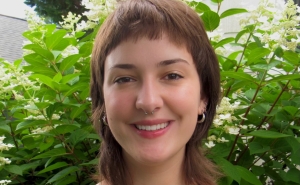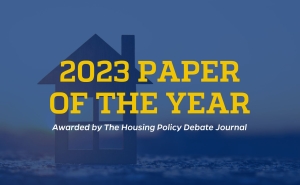Working Toward Health and Social Justice in Baltimore
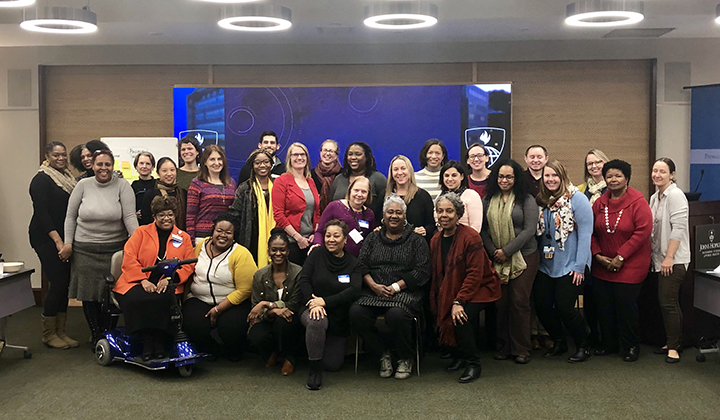
For more than a decade, an innovative office has coordinated community engagement and service learning for the Johns Hopkins Schools of Public Health, Nursing, and Medicine.
Known as SOURCE, the office's mission is to engage the Johns Hopkins University health professional schools and Baltimore communities in mutually beneficial partnerships that promote health and social justice. SOURCE partners with more than 100 community-based organizations in Baltimore City.
Since its founding in 2005, SOURCE has coordinated volunteer experiences for nearly 13,000 JHU volunteers, who have logged 372,000 hours of service with Baltimore nonprofits.
All of SOURCE’s work reflects its four core values:
- Reciprocity—To exchange with others for mutual benefit
- Justice—To promote fair and equitable treatment for all
- Service—To be of service to others
- Collaboration—To work with others intentionally
This work happens via a series of initiatives and projects coordinated by SOURCE, including service-learning courses, social justice efforts and student engagement programs.
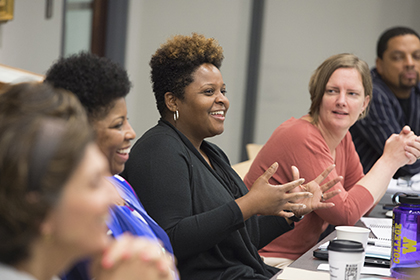 Service-Learning Courses
Service-Learning Courses
SOURCE-supported service-learning courses blend rigorous academics with community partnerships that push beyond the conventional days of service. In these courses, faculty and students work with local nonprofit organizations to design projects that support the organizations’ goals of serving their communities.
These projects, which run eight to 24 weeks, leverage the training our graduate students gain in their academic study to support public health efforts across the city. Recent projects include partnering with local Baltimore City schools to improve the availability of fresh foods to communities in food deserts, analyzing volunteer data to increase retention and commitment to the nonprofit’s mission and researching and presenting on state policy reform for LGBT health.
Sample service-learning courses supported through SOURCE:
- Baltimore Community Practicum
- Children in Crisis
- Formulating Policy
- Program Monitoring and Evaluation
- Qualitative Research course series
Learn more about our service-learning model based in collaboration, critical reflection and justice.
Social Justice Efforts
Working toward a more equitable and just society lies at the core of SOURCE’s mission. This has never been more evident as we lead a task force of faculty, staff, students and community leaders invested in a more socially just Baltimore. We have established Social Justice Action Teams that are creating guidelines for equitable partnerships with local organizations and communities, establishing university processes that value community assets and support community-led collaborations, and instituting development practices and pedagogies to help faculty make social justice a core part of their teaching practice.
In addition, SOURCE offers “Practicing Justice” forums where faculty, students and community members can engage in in-depth conversations of justice and health equity. In these spaces, we explore our own identities and work to understand the perspectives of others, recognize the value of collaboration and examine systems of power and privilege while empowering participants to be change agents.
Learn more about our Practicing Justice series.
Student Engagement Programs
At SOURCE, we support all service efforts with our local community partners, but we intentionally look for ways to deepen service opportunities beyond one-time events. We have established a number of long-term and recurring opportunities for our graduate students. Among the co-curricular student experiences are:
- The SOURCE Service Scholar program: This yearlong program partners students with community organizations to identify and manage sustainable programs that build organizational capacity. Past projects include volunteer training modules, health education series and volunteer recruitment efforts.
- Baltimore Action Projects: A collaborative effort with the Bloomberg American Health Initiative, Baltimore Action Projects are community-identified projects that directly connect to the Initiative’s five focus areas: addiction and overdose, obesity and the food system, violence, risks to adolescent health, and environmental challenges.
- HIV Counseling and Testing Program: This program trains students to serve as certified HIV counselors at one of three participating community clinics: STAR (Sisters Together and Reaching), Harriet Lane Clinic and the Johns Hopkins Hospital Emergency Department.
- Connection Community Consultants: Student consultants work in teams of three to five students to complete short-term projects for partnering community-based organizations.
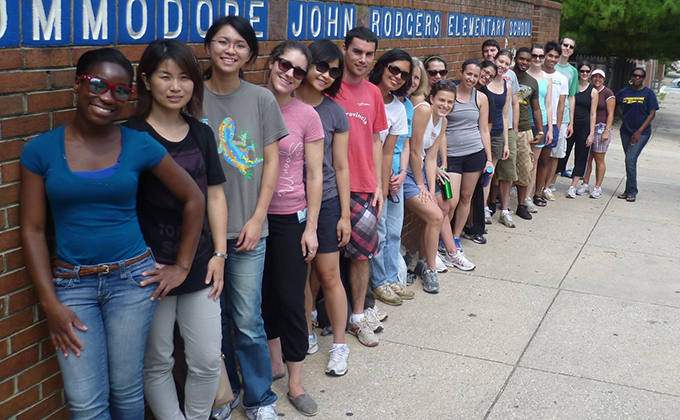
A Strategic Plan for the Future
In October 2018, the Bloomberg School released “The Power of Public Health: A Strategic Plan for the Future” with ambitious goals to address social, economic, political, environmental and other forces challenging human health.
The plan lays out five strategic goals in the areas of Education, Science, Partnerships, People, and Advocacy.
The third goal, Partnerships, is where SOURCE’s collaborative and collective work helps provide opportunities to embed community engagement into teaching and learning at the Bloomberg School.
“At the Bloomberg School, we value health as a human right and are committed to promoting health equity. We translate these values into action by partnering to protect the population’s health and advance equity and social justice worldwide, with a special commitment to Baltimore.” —Johns Hopkins Bloomberg School of Public Health Strategic Plan
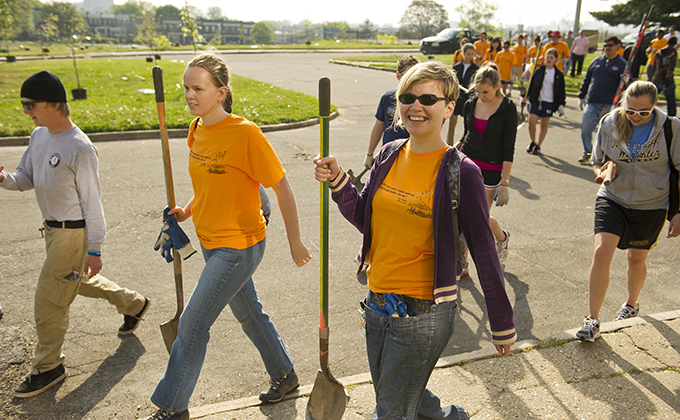
CONNECT WITH SOURCE FACULTY AND STAFF
RELATED CONTENT



